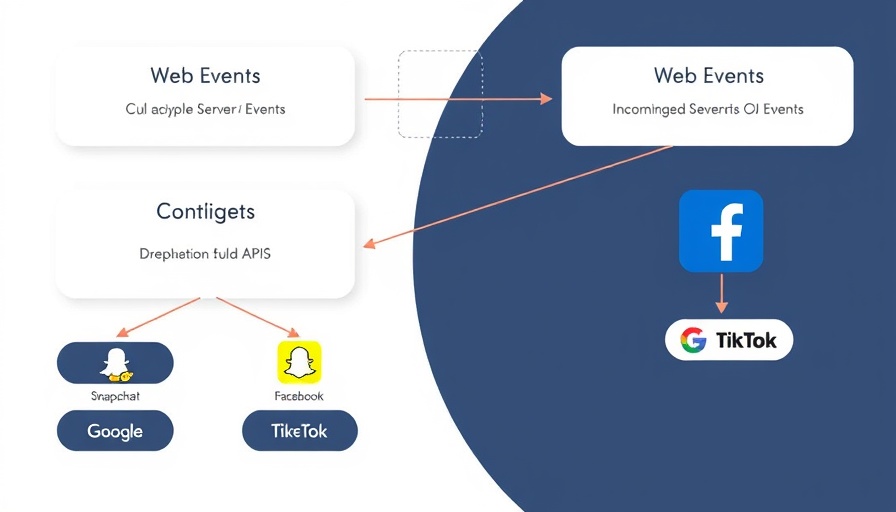
Why Conversion APIs are Game Changers for Marketers
In today's data-driven marketing landscape, Conversion APIs have emerged as vital tools for enhancing campaign performance. With increasing concerns over privacy and data protection, especially in the wake of regulations like GDPR, marketers are being pushed to rethink how they gather and utilize data. Conversion APIs enable businesses to track user actions more accurately, leading to improved targeting and optimization across various campaigns.
The Hidden Costs of Ineffective Tracking
Before diving into the advantages of Conversion APIs, it’s crucial to recognize what’s at stake with outdated tracking methodologies. Traditional methods often lead to inaccurate data reporting, which can affect everything from budget allocation to campaign strategies. For instance, a small miscalculation in tracking event conversions could skew a company's ROI analysis significantly, leading to misguided marketing decisions. Marketers need to adopt robust tools that allow for precise data collection and reporting.
Understanding Conversion APIs and Their Benefits
Conversion APIs provide an essential bridge between online user behavior and marketing analytics. By sending conversion data directly from servers rather than relying solely on browser cookies, these APIs allow marketers to obtain data with increased privacy compliance. This method not only respects user privacy but also improves data accuracy—key components in today's marketing strategies.
Real-World Examples of Enhanced Campaign Performance
Several companies have reported remarkable improvements in their campaign performances after integrating Conversion APIs. For instance, a popular e-commerce brand leveraged Conversion APIs to streamline its ad campaigns on multiple platforms. This integration resulted in a 25% increase in conversion rates and a significant reduction in customer acquisition costs. Similarly, businesses using Data-Driven Attribution models in conjunction with Conversion APIs have found they gain better insights into which touchpoints lead to higher conversions, allowing for well-informed marketing strategies.
The AI Factor: Future Trends in Marketing
Looking ahead, the integration of AI with Conversion APIs could spark a new wave of innovation in digital marketing. AI algorithms can analyze vast amounts of real-time data obtained through these APIs, offering actionable insights that can optimize campaigns instantaneously. As we approach 2025, the synergy between Conversion APIs and AI is likely to redefine marketing strategies, creating more personalized customer experiences and boosting engagement rates.
Steps to Implement Conversion APIs Effectively
Implementing Conversion APIs might seem daunting at first, especially for small business owners. However, the following steps can pave the way for a successful transition:
- Define Your Goals: Establish specific objectives for what you want to achieve through your API integration.
- Choose the Right Platforms: Determine which marketing platforms and tools can utilize Conversion APIs effectively.
- Implement Gradually: Start small by integrating Conversion APIs with key marketing channels to assess performance before a wider rollout.
- Monitor and Adjust: Regularly analyze campaign results to optimize performance continuously based on data insights.
Conclusion: Embracing Tools for the Future
In a rapidly evolving digital landscape, staying ahead means embracing technological advancements. For professionals and business owners, integrating Conversion APIs not only enhances campaign performance but also prepares them for future challenges in digital marketing. As the marketing ecosystem continues to shift, those who adapt will reap the benefits of improved accuracy, user engagement, and ultimately, business success. Don’t get left behind; take a step towards improving your campaign performance by exploring how Conversion APIs can fit into your marketing strategy today.
 Add Row
Add Row  Add
Add 




Write A Comment